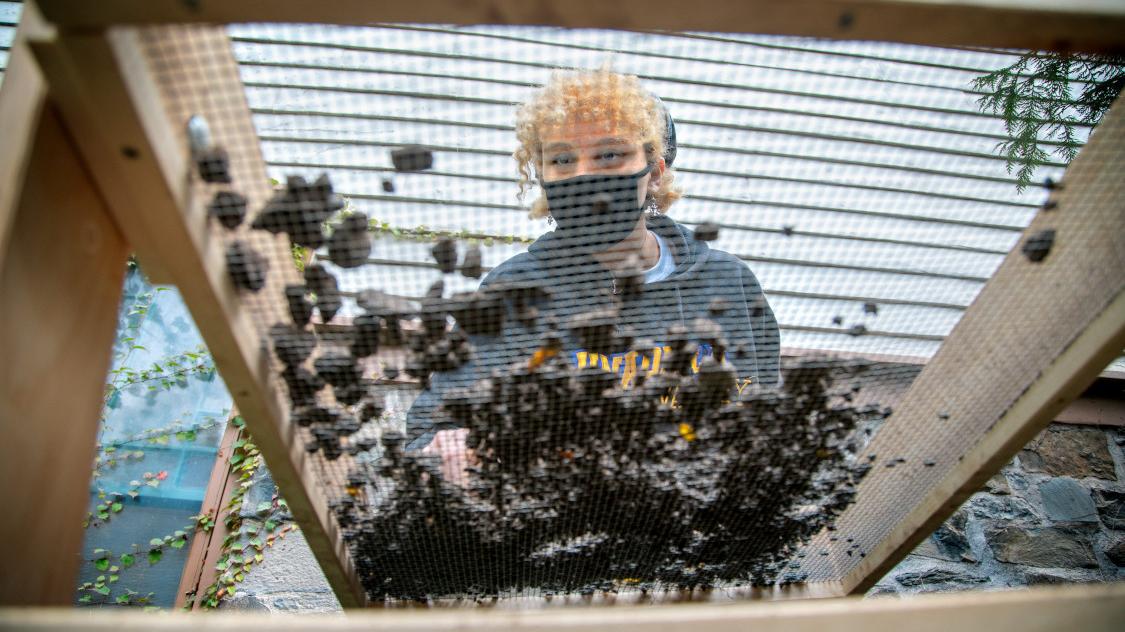In 2012 we launched the Cornell Institute of Archaeology and Material Studies (CIAMS), a unique initiative that links archaeology and material studies through multidisciplinary collaboration among a wide range of departments and units. The new Institute grows out of Cornell’s long-standing Archaeology Program. Founded in 1967, the Archaeology Program is one of the few entities in the United States to offer both an undergraduate major and master’s degree in archaeology. The Institute was formed to meet the needs of a vibrant community of graduate students and faculty at Cornell who are linked by an abiding commitment to the multidisciplinary study of archaeology and material studies. We seek to combine theory and method, practice and analysis.
The Institute offers an active intellectual space for archaeological inquiry and exchange through regular programming that includes a colloquium series, podcast series, conferences, and visiting scholars. It also harnesses the collective intellectual, technical, and collections resources of a number of existing units of archaeology-related activity at Cornell into an integrated hub of research , training, and dissemination (click to see Google map). These units include the Cornell Tree-Ring Laboratory, the Landscapes and Objects Laboratory, the Material Culture Laboratory, the Human and Animal Bone Laboratory (HABLAB), the Herbert F. Johnson Museum, and the Anthropology Collections, as well as faculty laboratories associated with long-term field and analytical projects ranging from North America to Neolithic Anatolia (click for map). In addition, the Institute encourages collaboration with many units at Cornell that engage in material studies, like the Cornell High Energy Synchrotron Source and the Cornell Center for Materials Research.
CIAMS is an expansive and inclusive project. We are excited to train the next generation of scholars and practitioners in Archaeology and its peer disciplines, from Art History and Museum Studies to Anthropology, Landscape Architecture, and historical disciplines (such as Classics, Near Eastern Studies, and Medieval Studies), which all share a common interest in the human experience as shaped and informed through the material world. All MA students admitted to Cornell’s Archaeology Program are affiliated with the Institute, as are all PhD students in Anthropology, Classics, Medieval Studies, Near Eastern Studies, and History of Art who apply for affiliate status and commit to completing the CIAMS course requirements. The Institute offers a seminar required for all graduate students associated with the Institute, as well as two core courses in archaeological method and archaeological theory that critically examine the interrelations between humans and things. These required courses complement a wide range of archaeology and related course offerings in the departments of Anthropology, Classics, History of Art, Medieval Studies, Near Eastern Studies, and Landscape Architecture.
Mission:
To promote research and education in archaeology and material studies through diverse theoretical, methodological, and historical approaches that inform the fundamental materiality of the human condition across time and space.
Goals:
- Provide an expansive and integrated intellectual home for scholars engaged in archaeological research and related material studies from the social, humanistic, and physical sciences;
- Harness the theories and methods of archaeology to contribute to a broad conversation underway in the humanities and social sciences on materials and materiality;
- Offer educational programs that train graduate students in the multidisciplinary study of archaeology and the objects, landscapes, and bodies that make up our world;
- Encourage linkages among fields and institutions traditionally divided by distinct disciplinary perspectives in order to advance the common goal of illuminating the human condition, its past, and its material entanglements.
Main areas of teaching and research:
Archaeology faculty at Cornell research and teach widely across time and space, sharing common interests in archaeological theory and methods. We have particular research and teaching strengths in Mediterranean, Near Eastern and Classical archaeology and art from prehistory through to the Byzantine period, and in the archaeology of the Caucasus. Faculty also work on historic and contact period North America, Central and South American archaeology and cultures, Asian archaeology, African early prehistory, and European prehistory. We have strengths in zooarchaeology, dendrochronology, archaeological radiocarbon dating, landscape archaeology, and the study of objects and material studies in general. Cornell possesses a world-class library, and rich collections of archaeological, anthropological, and art-historical materials available for teaching and research.

